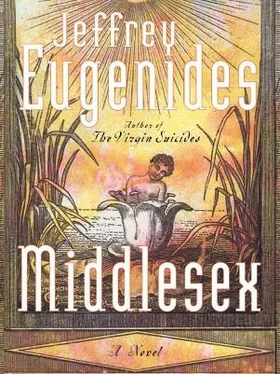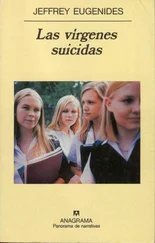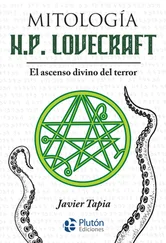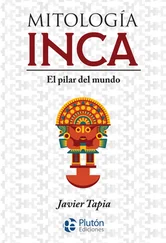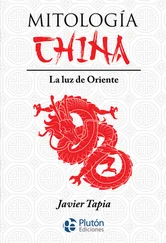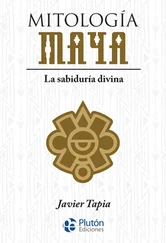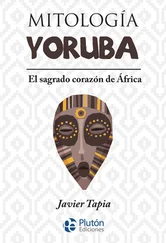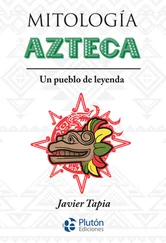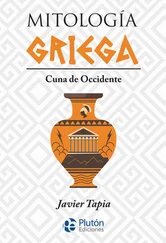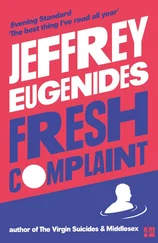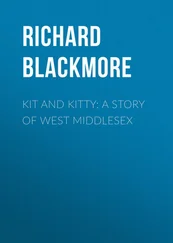Father Mike held Tessie’s hand as she lay suffering on the bed upstairs. Removing his jacket, wearing only his black short-sleeved shirt and collar, he told her that he would pray for my return. He advised Tessie to go to church and light a candle for me. I ask myself now what Father Mike’s face looked like as he held my mother’s hand in the master bedroom. Was there any hint of Schadenfreude ? Of taking pleasure in the unhappiness of his former fiancée? Of enjoyment at the fact that his brother-in-law’s money couldn’t protect him from this misfortune? Or of relief that for once, on the ride home, his wife, Zoë, wouldn’t be able to compare him unfavorably with Milton? I can’t answer these questions. As for my mother, she was tranquilized, and remembers only that the pressure in her eyes made Father Mike’s face appear oddly elongated, like a priest in a painting by El Greco.
At night Tessie slept fitfully. Panic kept waking her up. In the morning she made the bed but, after breakfast, sometimes went to lie on it again, leaving her tiny white Keds neatly on the carpet and closing the shades. The sockets of her eyes darkened and the blue veins at her temples visibly throbbed. When the telephone rang, her head felt as if it would explode.
“Hello?”
“Any word?” It was Aunt Zo. Tessie’s heart sank.
“No.”
“Don’t worry. She’ll turn up.”
They spoke for a minute before Tessie said she had to go. “I shouldn’t tie up the line.”
Every morning a great wall of fog descends upon the city of San Francisco. It begins far out at sea. It forms over the Farallons, covering the sea lions on their rocks, and then it sweeps onto Ocean Beach, filling the long green bowl of Golden Gate Park. The fog obscures the early morning joggers and the lone practitioners of tai chi. It mists up the windows of the Glass Pavilion. It creeps over the entire city, over the monuments and movie theaters, over the Panhandle dope dens and the flophouses in the Tenderloin. The fog covers the pastel Victorian mansions in Pacific Heights and shrouds the rainbow-colored houses in the Haight. It walks up and down the twisting streets of Chinatown; it boards the cable cars, making their clanging bells sound like buoys; it climbs to the top of Coit Tower until you can’t see it anymore; it moves in on the Mission, where the mariachi players are still asleep; and it bothers the tourists. The fog of San Francisco, that cold, identity-cleansing mist that rolls over the city every day, explains better than anything else why that city is what it is. After the Second World War, San Francisco was the main point of reentry for sailors returning from the Pacific. Out at sea, many of these sailors had picked up amatory habits that were frowned upon back on dry land. So these sailors stayed in San Francisco, growing in number and attracting others, until the city became the gay capital, the homosexual Hauptstadt . (Further evidence of life’s unpredictability: the Castro is a direct outcome of the military-industrial complex.) It was the fog that appealed to those sailors because it lent the city the shifting, anonymous feeling of the sea, and in such anonymity personal change was that much easier. Sometimes it was hard to tell whether the fog was rolling in over the city or whether the city was drifting out to meet it. Back in the 1940s, the fog hid what those sailors did from their fellow citizens. And the fog wasn’t done. In the fifties it filled the heads of the Beats like the foam in their cappuccinos. In the sixties it clouded the minds of the hippies like the pot smoke rising in their bongs. And in the seventies, when Cal Stephanides arrived, the fog was hiding my new friends and me in the park.
On my third day in the Haight, I was in a café, eating a banana split. It was my second. The kick of my new freedom was wearing off. Gorging on sweets didn’t chase away the blues as it had a week earlier.
“Spare some change?”
I looked up. Slouching beside my small marble-topped table was a type I knew well. It was one of the underpass kids, the scroungy runaways I kept my distance from. The hood of his sweatshirt was up, framing a flushed face, ripe with pimples.
“Sorry,” I said.
The boy bent over, his face getting closer to mine. “Spare some change?” he said again.
His persistence annoyed me. So I glowered at him and said, “I should ask you the same question.”
“I’m not the one pigging out on a sundae.”
“I told you I don’t have any spare change.”
He glanced behind me and asked more affably, “How come you’re carrying that humongous suitcase around?”
“That’s my business.”
“I saw you yesterday with that thing.”
“I have enough money for this ice cream but that’s it.”
“Don’t you have any place to stay?”
“I’ve got tons of places.”
“You buy me a burger I’ll show you a good place.”
“I said I’ve got tons.”
“I know a good place in the park.”
“I can go into the park myself. Anyone can go into the park.”
“Not if they don’t want to get rolled they can’t. You don’t know what’s up, man. There’s places in the Gate that are safe and places that aren’t. Me and my friends got a nice place. Real secluded. The cops don’t even know about it, so we can just party all the time. Might let you stay there but first I need that double cheese.”
“It was a hamburger a minute ago.”
“You snooze, you lose. Price is going up all the time. How old are you, anyway?”
“Eighteen.”
“Yeah, right, like I’ll believe that. You ain’t no eighteen. I’m sixteen and you’re not any older than me. You from Marin?”
I shook my head. It had been a while since I had spoken to anyone my age. It felt good. It made me less lonely. But I still had my guard up.
“You’re a rich kid, though, right? Mr. Alligator?”
I didn’t say anything. And suddenly he was all appeal, full of kid hungers, his knees shaking. “Come on , man. I’m hungry. Okay, forget the double cheese. Just a burger.”
“All right.”
“Cool. A burger. And fries. You said fries, right? You won’t believe this, man, but I got rich parents, too.”
So began my time in Golden Gate Park. It turned out my new friend, Matt, wasn’t lying about his parents. He was from the Main Line. His father was a divorce lawyer in Philadelphia. Matt was the fourth child, the youngest. Stocky, with a lug’s jaw, a throaty, smoke-roughened voice, he had left home to follow the Grateful Dead the summer before but had never stopped. He sold tie-dyed T-shirts at their concerts, and dope or acid when he could. Deep in the park, where he led me, I found his cohorts.
“This is Cal,” Matt told them. “He’s going to crash here for a while.”
“That’s cool.”
“You an undertaker, man?”
“I thought it was Abe Lincoln at first.”
“Nah, these are just Cal’s traveling clothes,” Matt said. “He’s got some others in that suitcase. Right?”
I nodded.
“You want to buy a shirt? I got some shirts.”
“All right.”
The camp was located in a grove of mimosa trees. The fuzzy red flowers on the branches were like pipe cleaners. Stretching over the dunes were huge evergreen bushes that formed natural huts. They were hollow inside, the soil dry underneath. The bushes kept the wind out and, most of the time, the rain. Inside, there was enough room to sit up. Each bush contained a few sleeping bags; you chose whichever one happened to be empty when you wanted to sleep. Communal ethics applied. Kids were always leaving the camp or showing up. It was equipped with all the stuff they abandoned: a camping stove, a pasta pot, miscellaneous silverware, jelly jar glasses, bedding, and a glow-in-the-dark Frisbee the guys tossed around, sometimes enlisting me to even out the sides. (“Jesus, Gator, you throw like a girl, man.”) They were well stocked with gorp, bongs, pipes, vials of amyl nitrate, but understocked on towels, underwear, toothpaste. There was a ditch thirty or so yards distant that we employed as a latrine. The fountain by the aquarium was good for washing oneself, but you had to do it at night to avoid the police.
Читать дальше
Конец ознакомительного отрывка
Купить книгу
